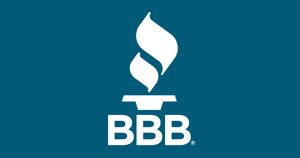Straight Talk: Donation you don't recall is likely credit card fraud

Better Business Bureau serving Canton Region and Greater West Virginia offers tips and advice for consumers to avoid fraudulent practices.
With so many purchases during the holiday season, it can be easy to miss a fraudulent credit card charge or two – especially if it appears to be from a charity. But watch out! Strange donation charges are a sign that scammers have your credit card number.
How the scam works
You review your credit card statement and notice a charitable donation that you do not remember making. No, it is not a memory lapse; you were a victim of credit card fraud.
These phony charity charges are part of a bigger con. It all started when scammers got your credit card information, which may have been shared in a scam or as part of a data breach. After getting your credit card details, scammers now need to check whether they are valid. To do this, scammers often use charity websites. Charities often do not have sophisticated fraud protection, so it is easy for scammers to make a lot of small donations. When the charges go through, the scammer knows that your card details are still valid. Then, they will use your card for bigger purchases.One person reported to BBB.org/ScamTracker that after making a purchase from a questionable discount website, their debit card “was pinged for fraudulent charges ranging from $2 to $29 then finally $67 for a charity. I have had to cancel my debit card, order a new and block my account.”If you notice strange donation charges, be sure to report them immediately. With about a third of charitable giving happening at the end of the year, this con is particularly easy to miss during the holiday season. Find out more information at bit.ly/givingstats.
How to avoid unauthorized credit card scams
Report any questionable charges immediately. Do not wait until a scammer charges hundreds of dollars to your card. You will be issued a new card, and your old card number will be unusable for scammers to exploit.
Keep a close eye on charges made to your account. Periodically review your credit card statements. Contact your bank or credit card company immediately if you notice anything strange.
Protect sensitive personal information. Do not make purchases from suspicious online businesses and stay alert to phishing scams that claim to need your credit or debit card information. Never enter payment information into a website until you are sure you are dealing with a trustworthy business.
Use your credit card when making online purchases. Credit cards generally offer more protection against fraud; you have the right to challenge any unauthorized charges on your account and the card issuer has an obligation to credit such unauthorized charges back to your account upon timely notice and confirmation. Any demands for payment through wire transfer or gift cards are huge red flags – just walk away.
For more information
Read the BBB Tip: 10 steps to avoid scams (BBB.org/article/scams/8767-bbb-tips-10-steps-to-avoid-scams).
Learn more about your rights and responsibilities when it comes to stolen credit card details (consumer.ftc.gov/articles/lost-or-stolen-credit-atm-debit-cards).
For BBB information
Visit BBB.org/canton or call 330-454-9401 to look up a business, file a complaint, write a customer review, read tips, find our events, follow us on social media, and more!
This article originally appeared on The Repository: Straight Talk: Donation you don't recall is likely credit card fraud
